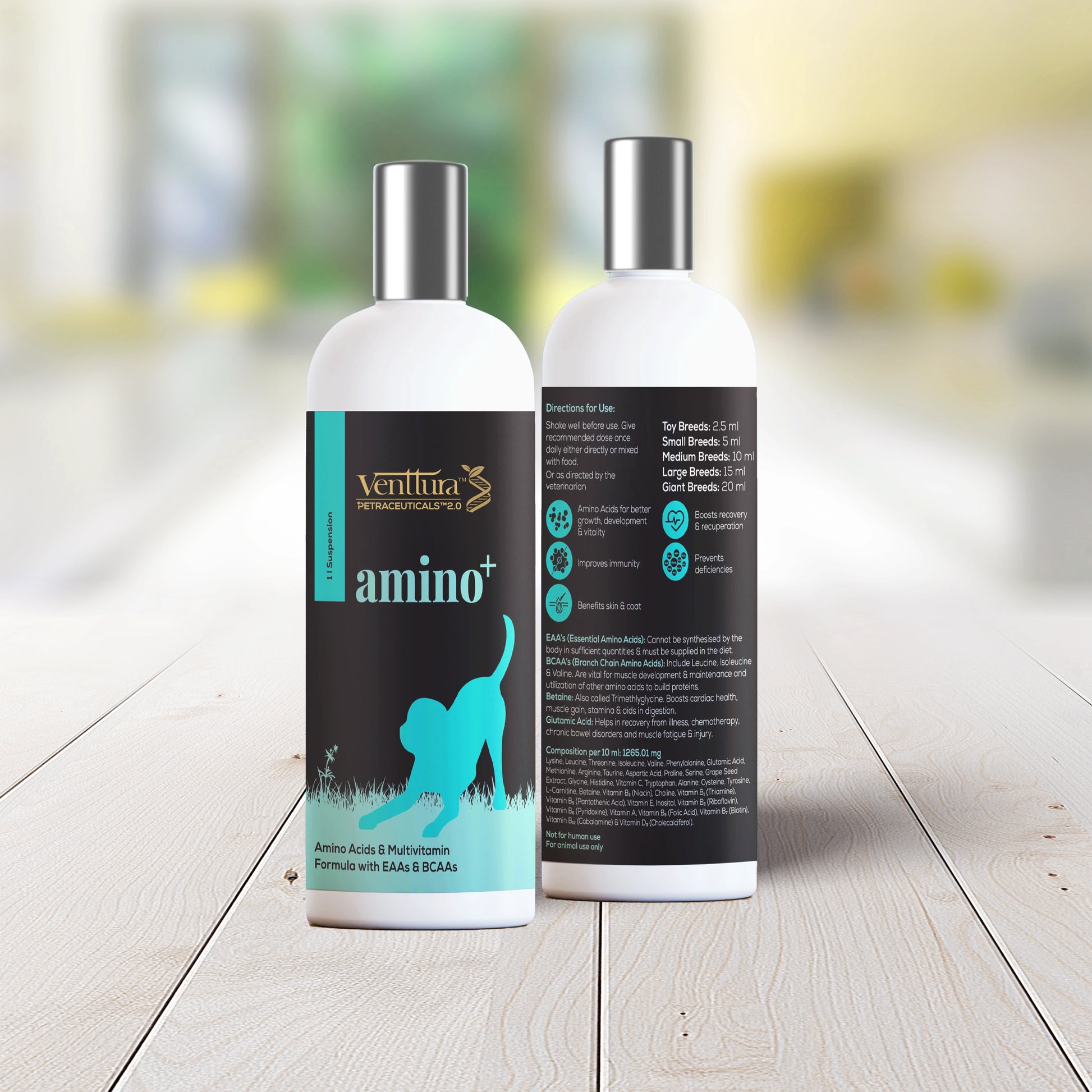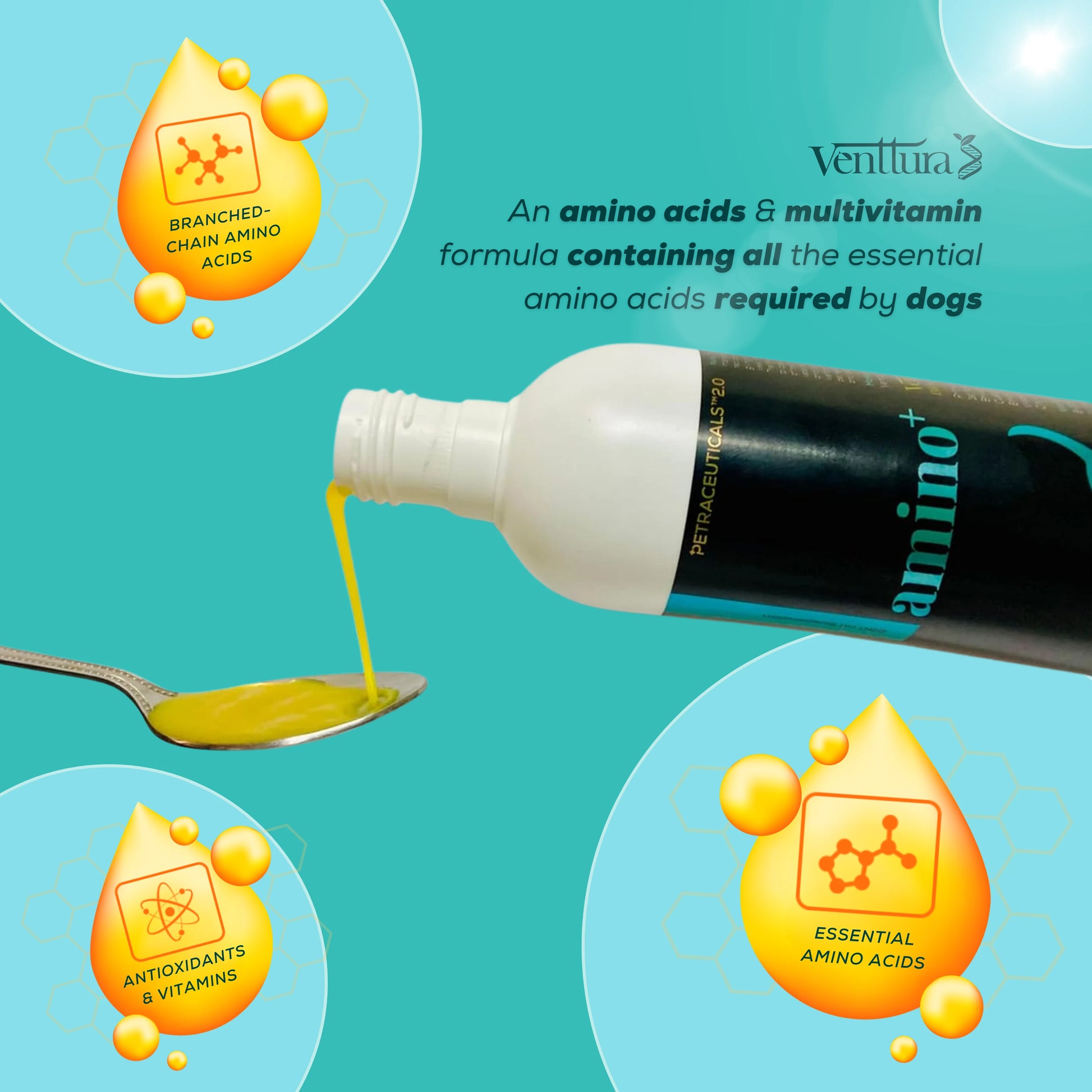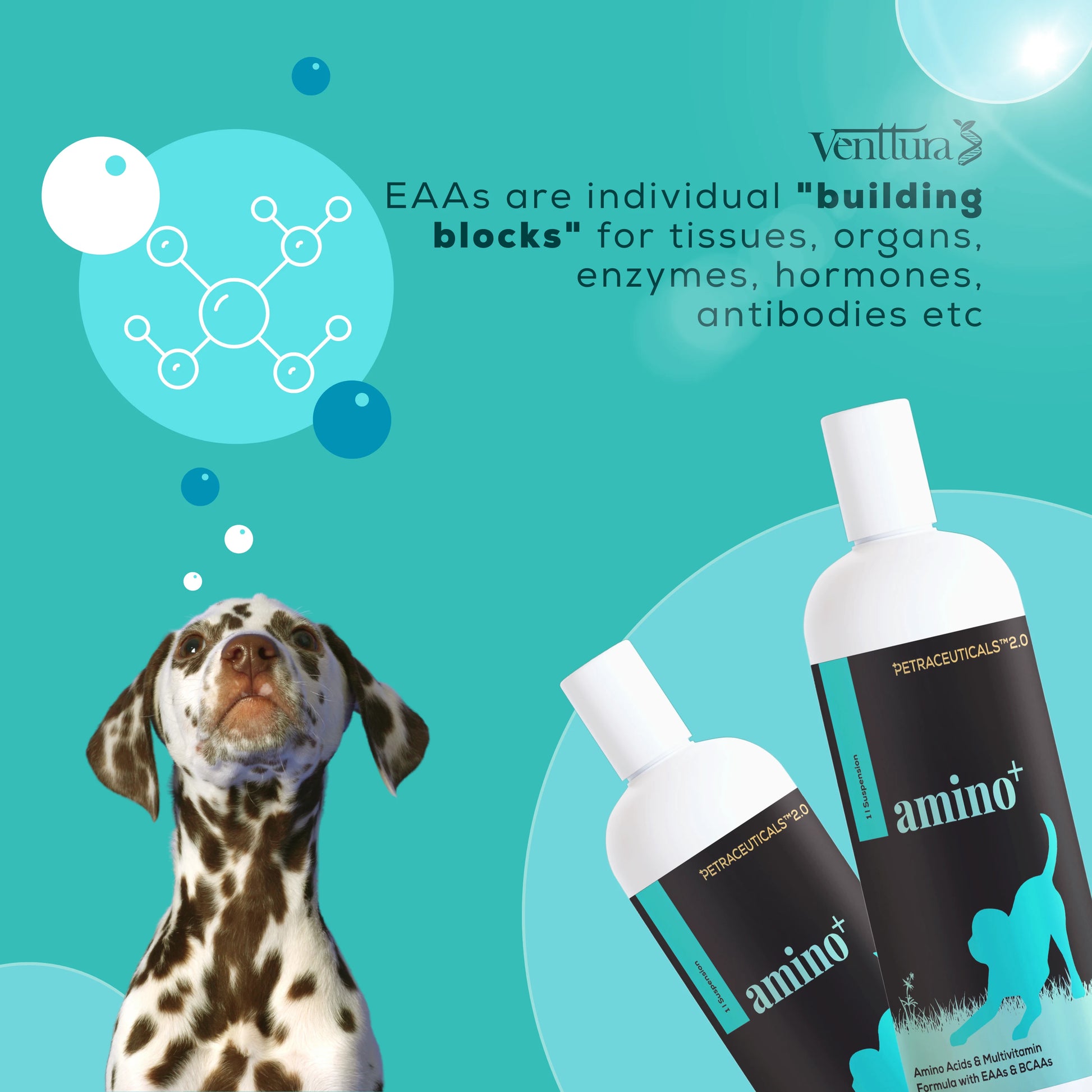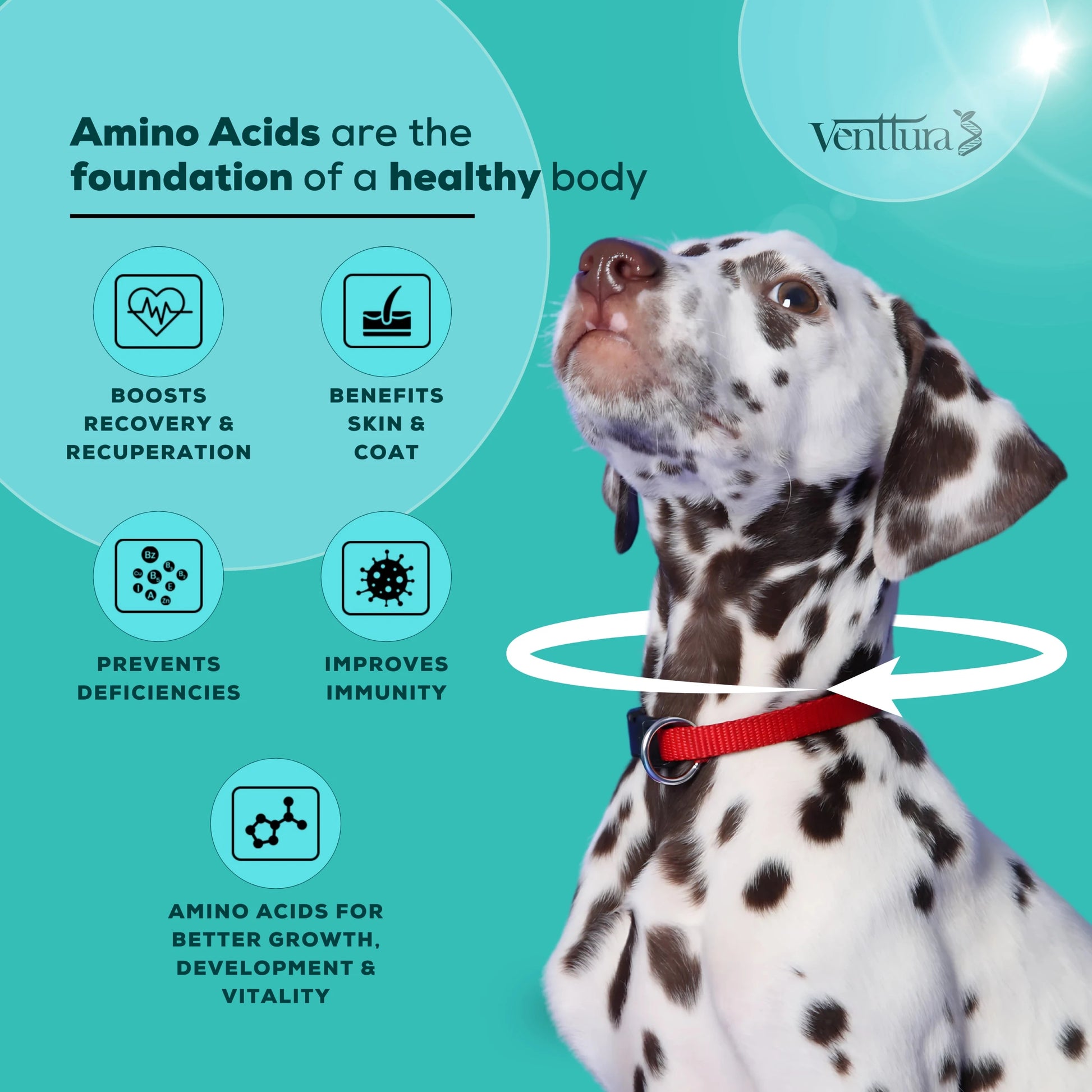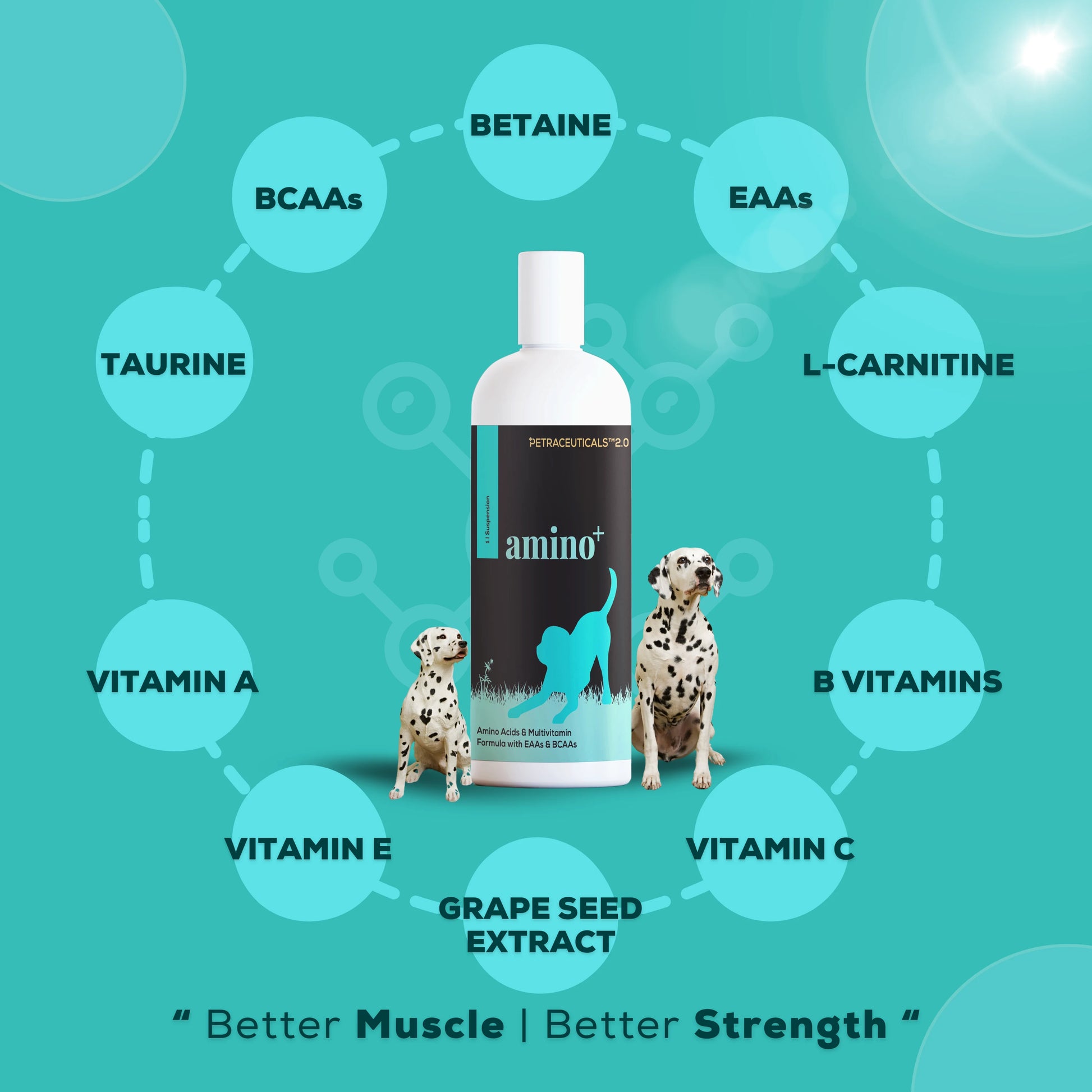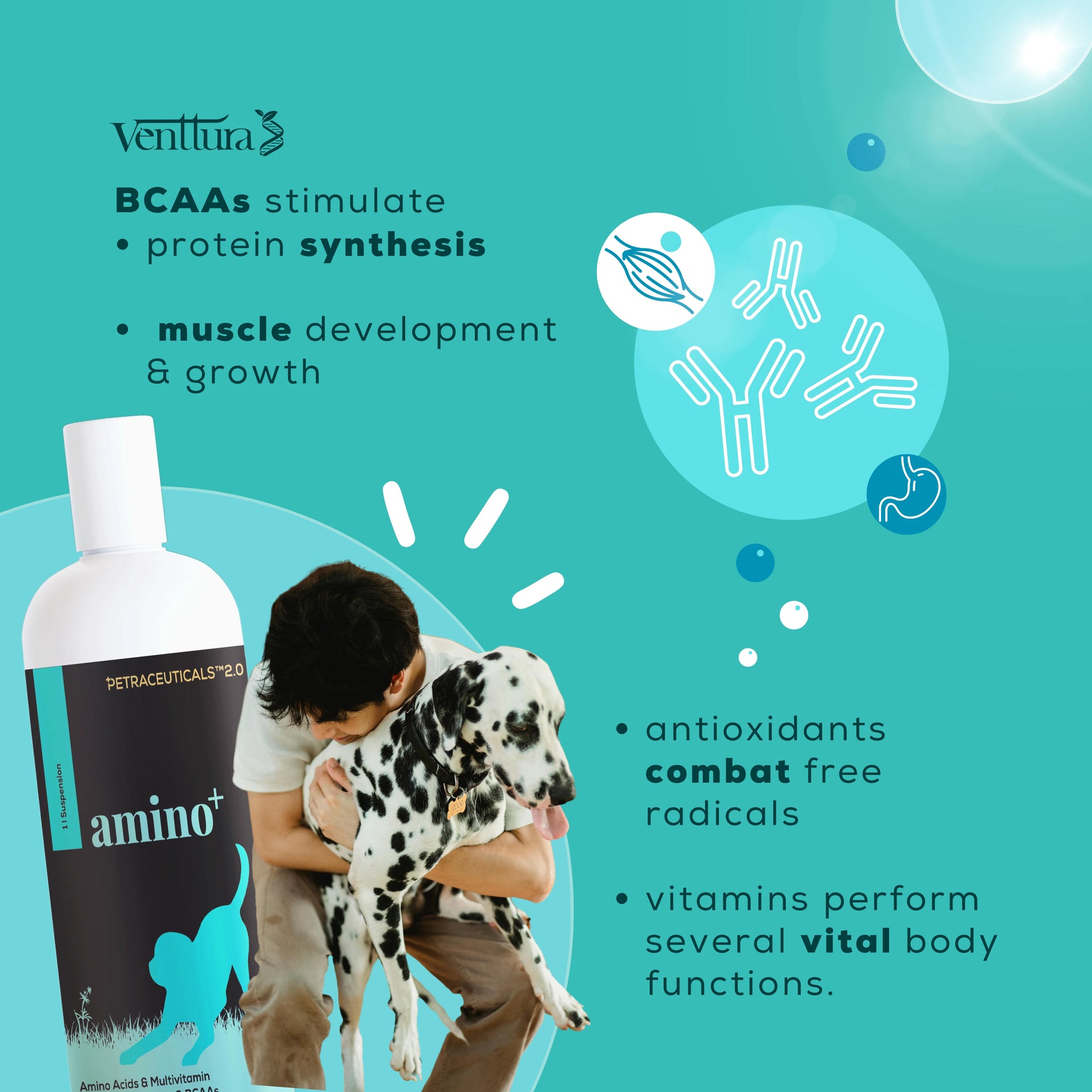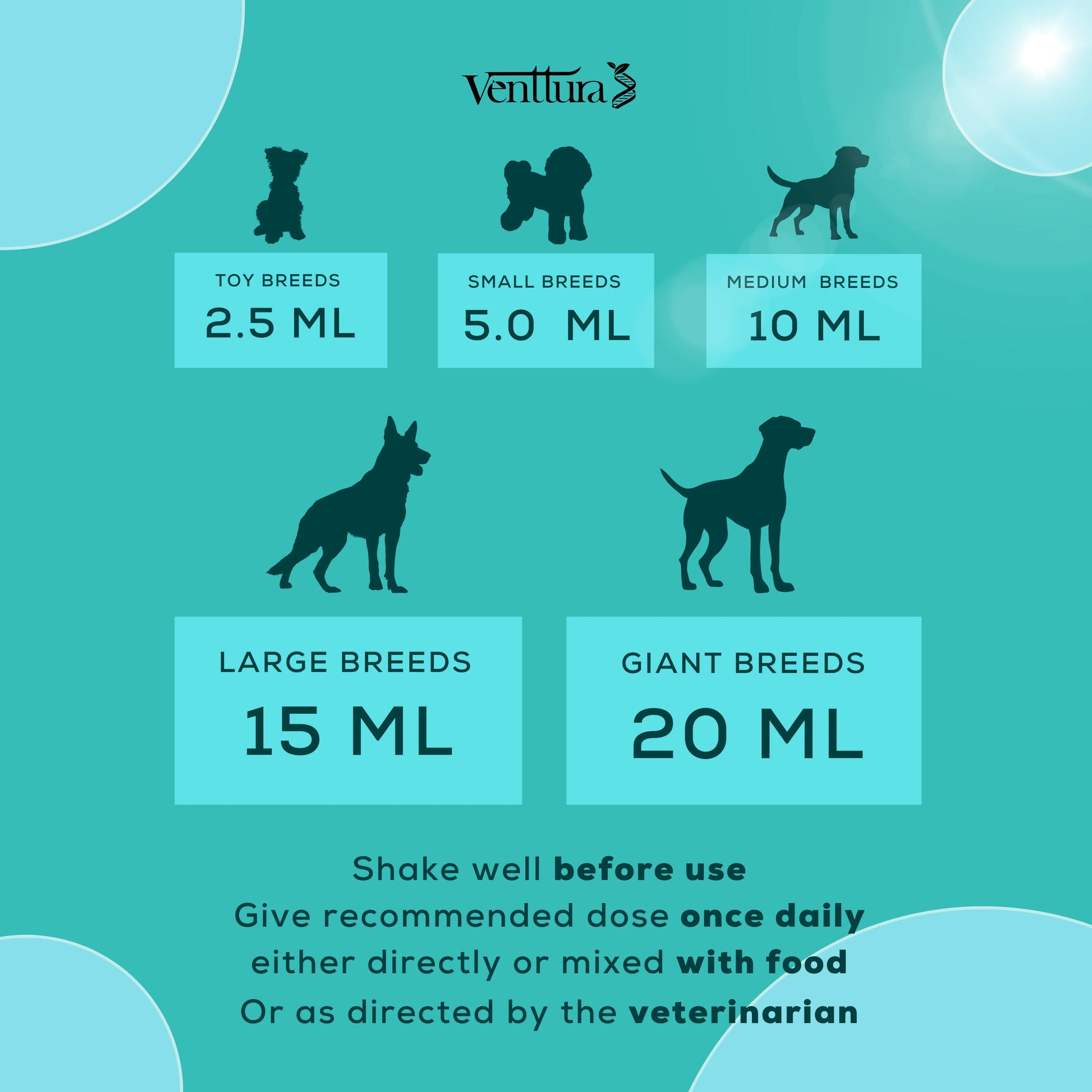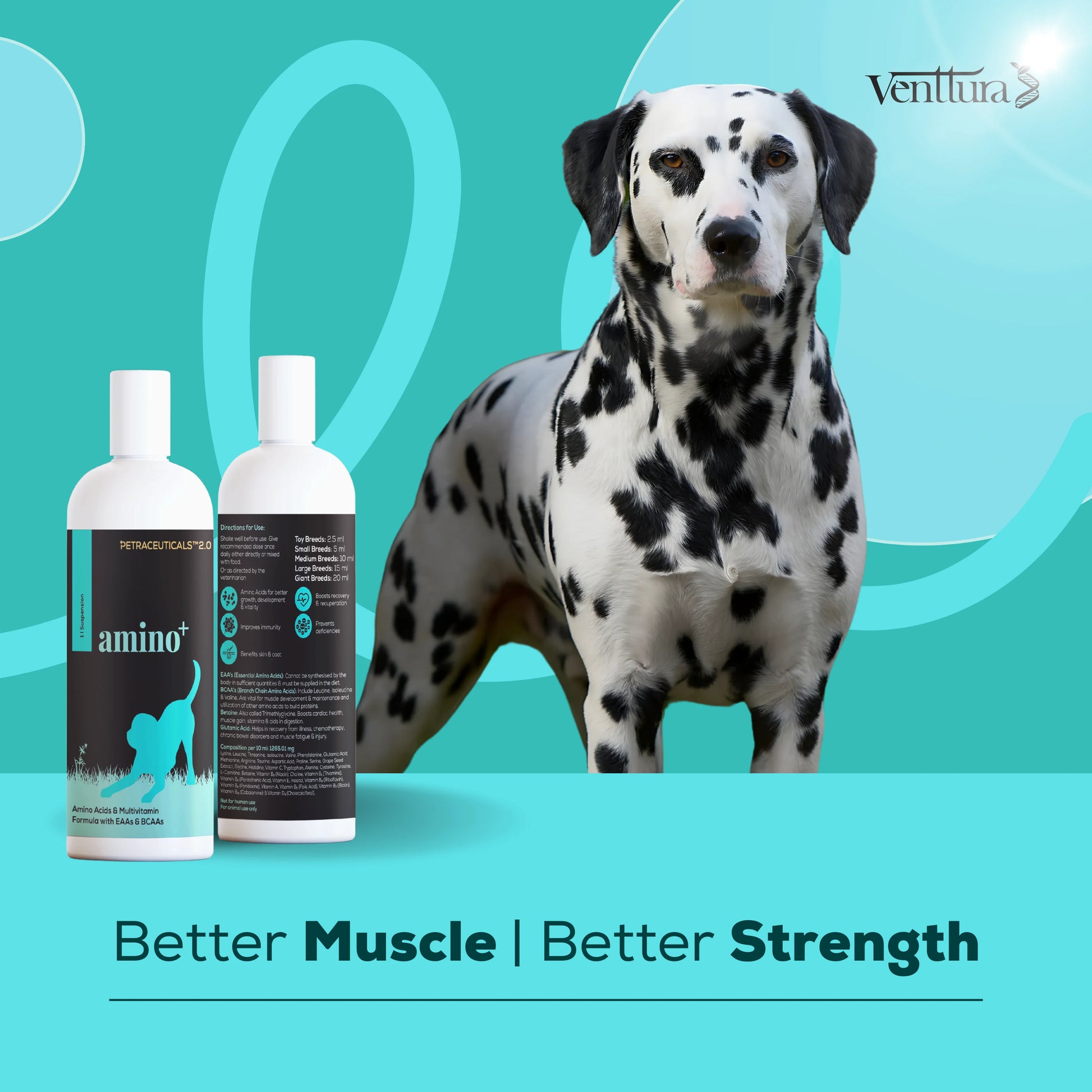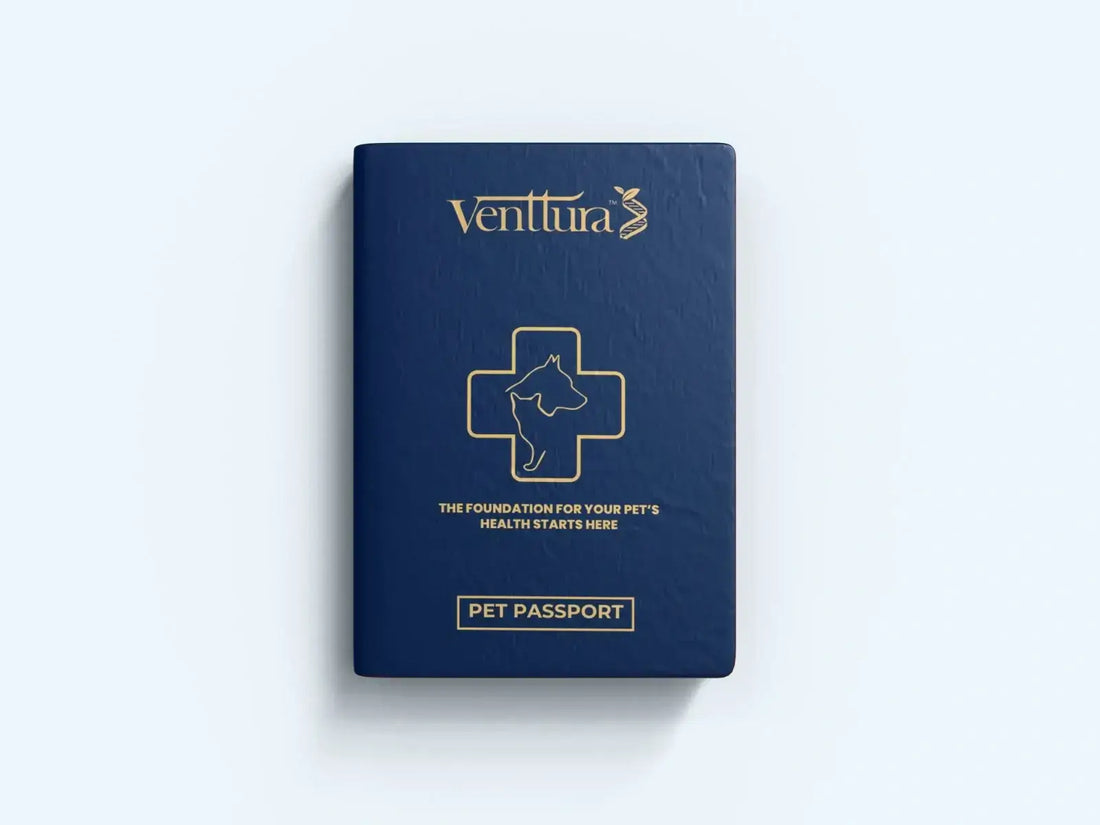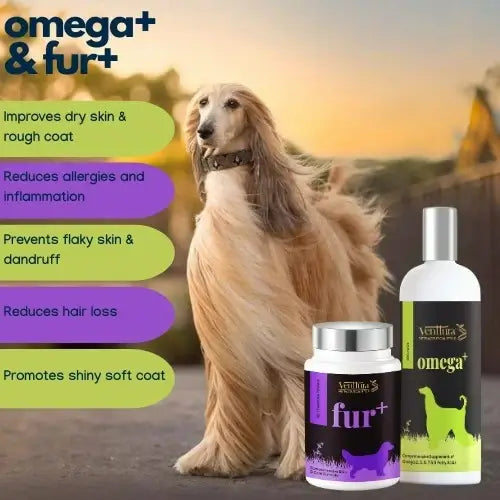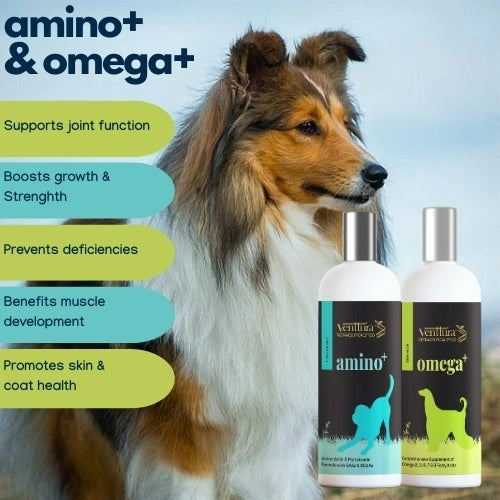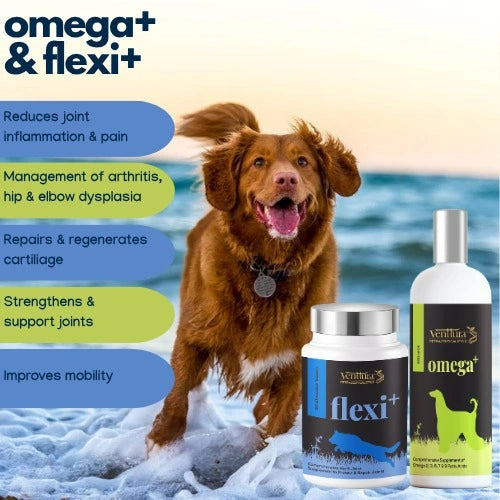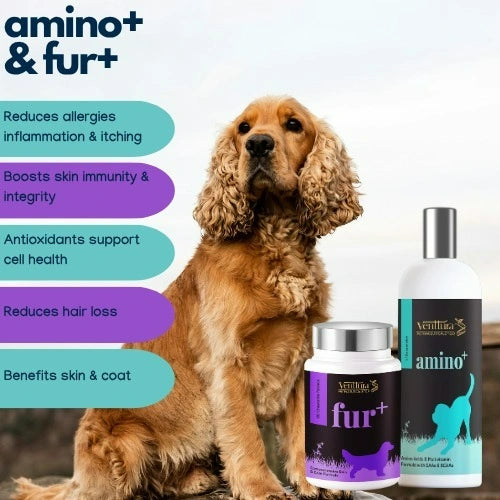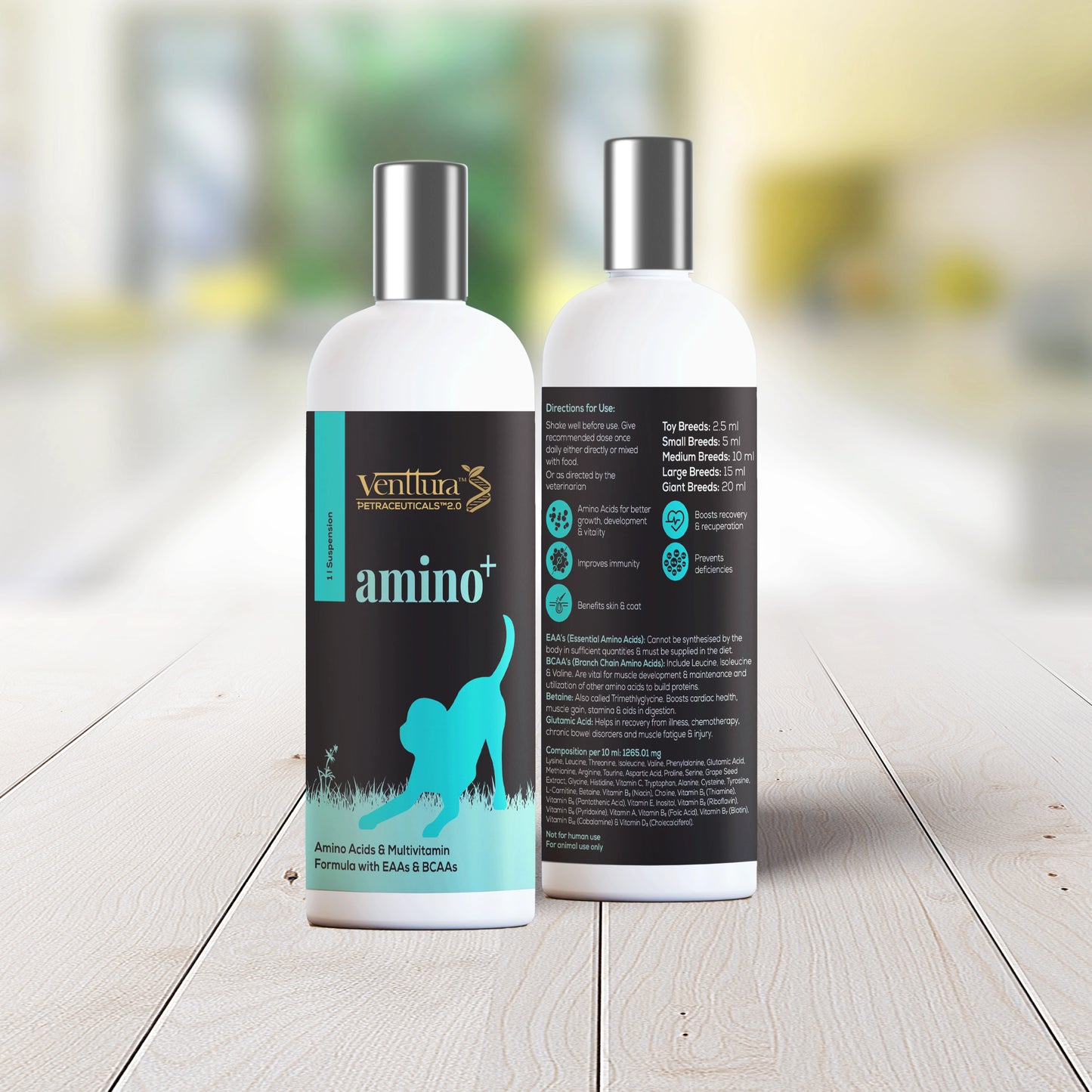
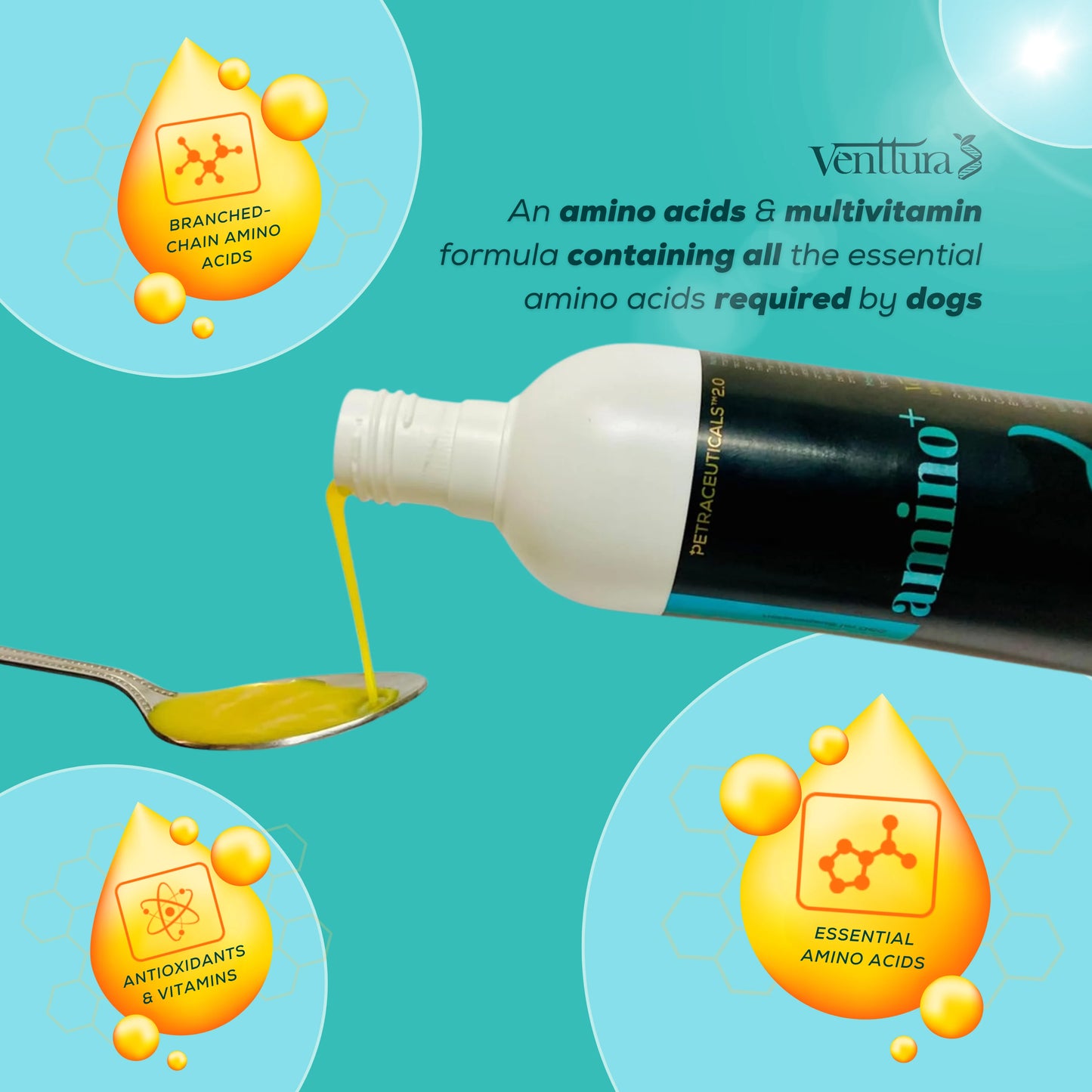
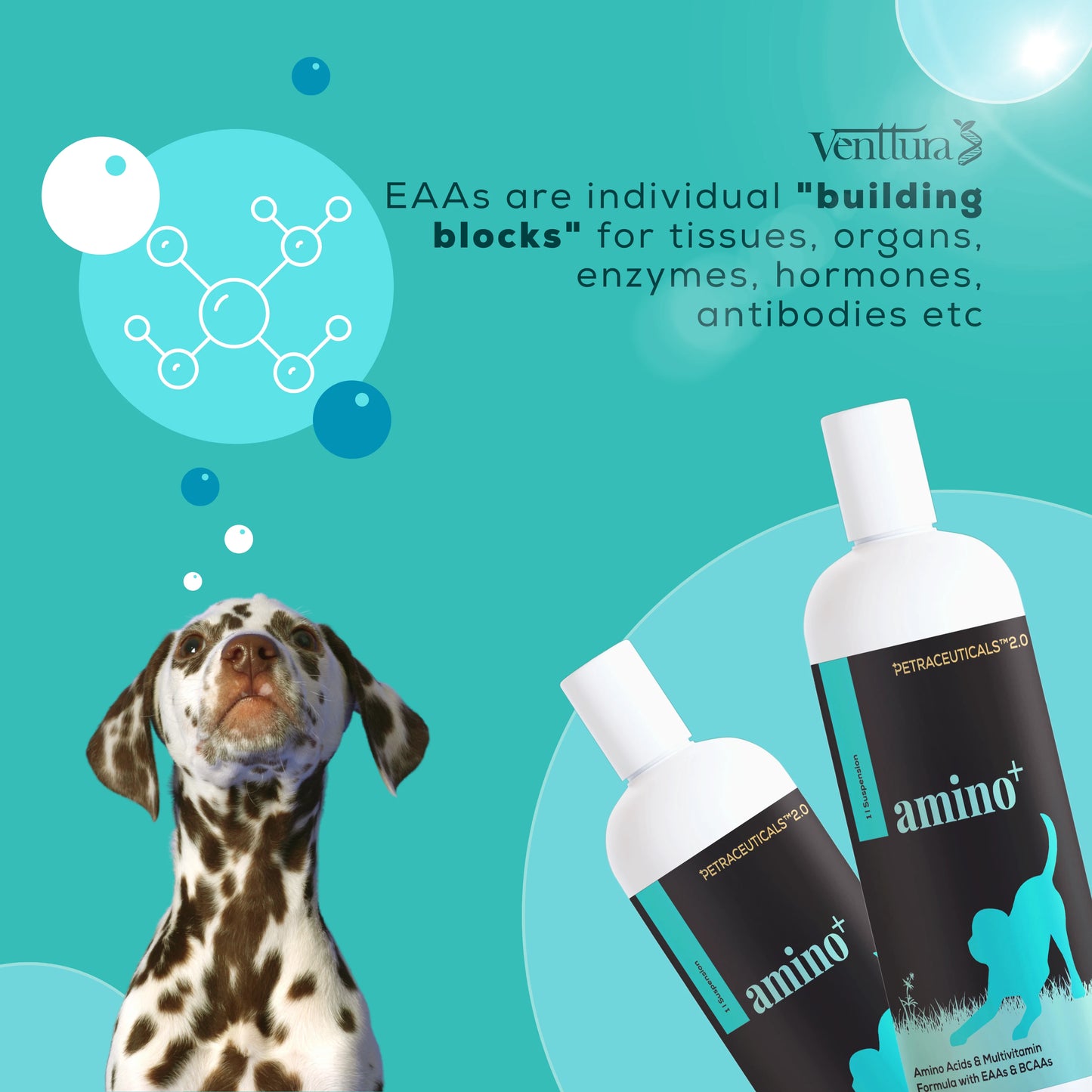
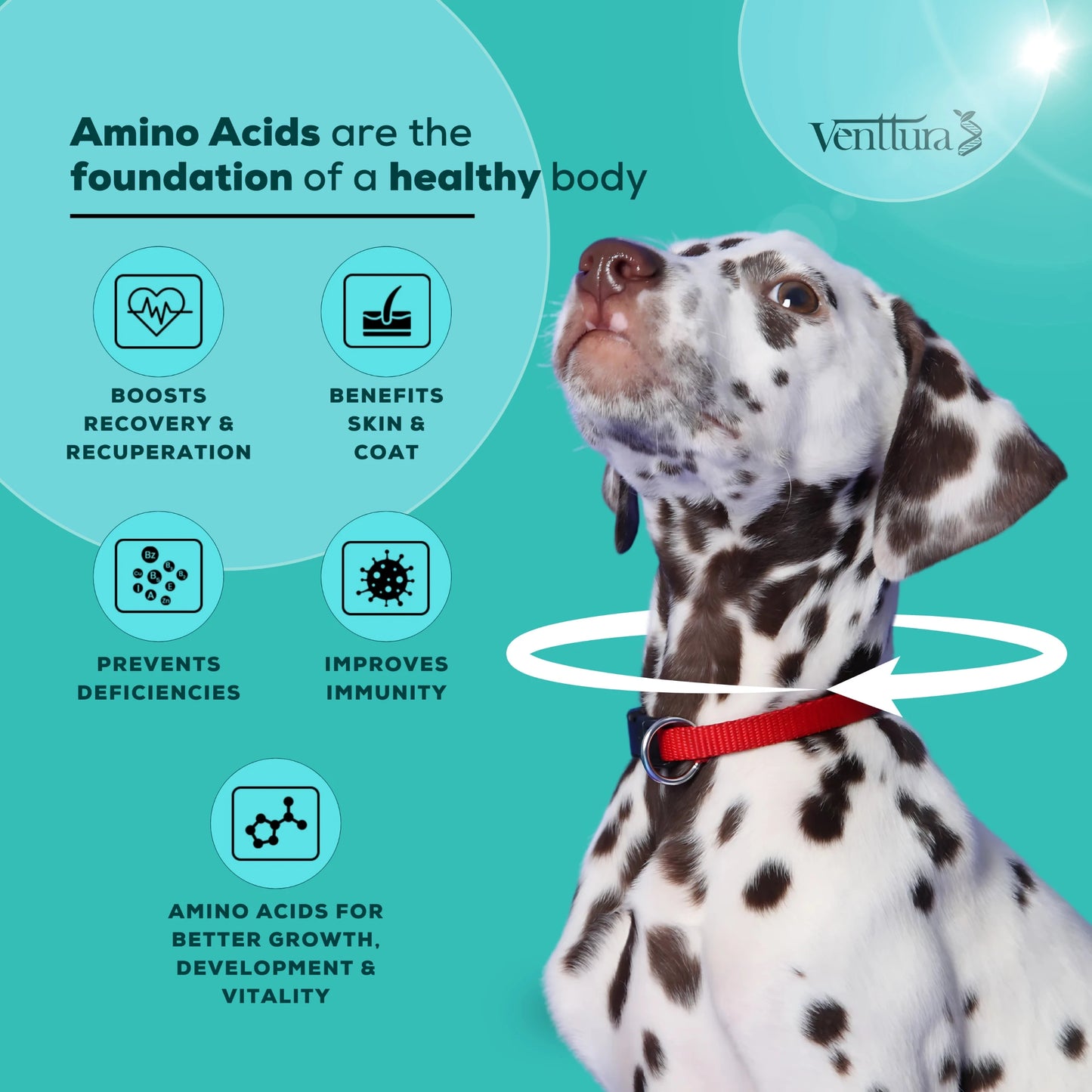
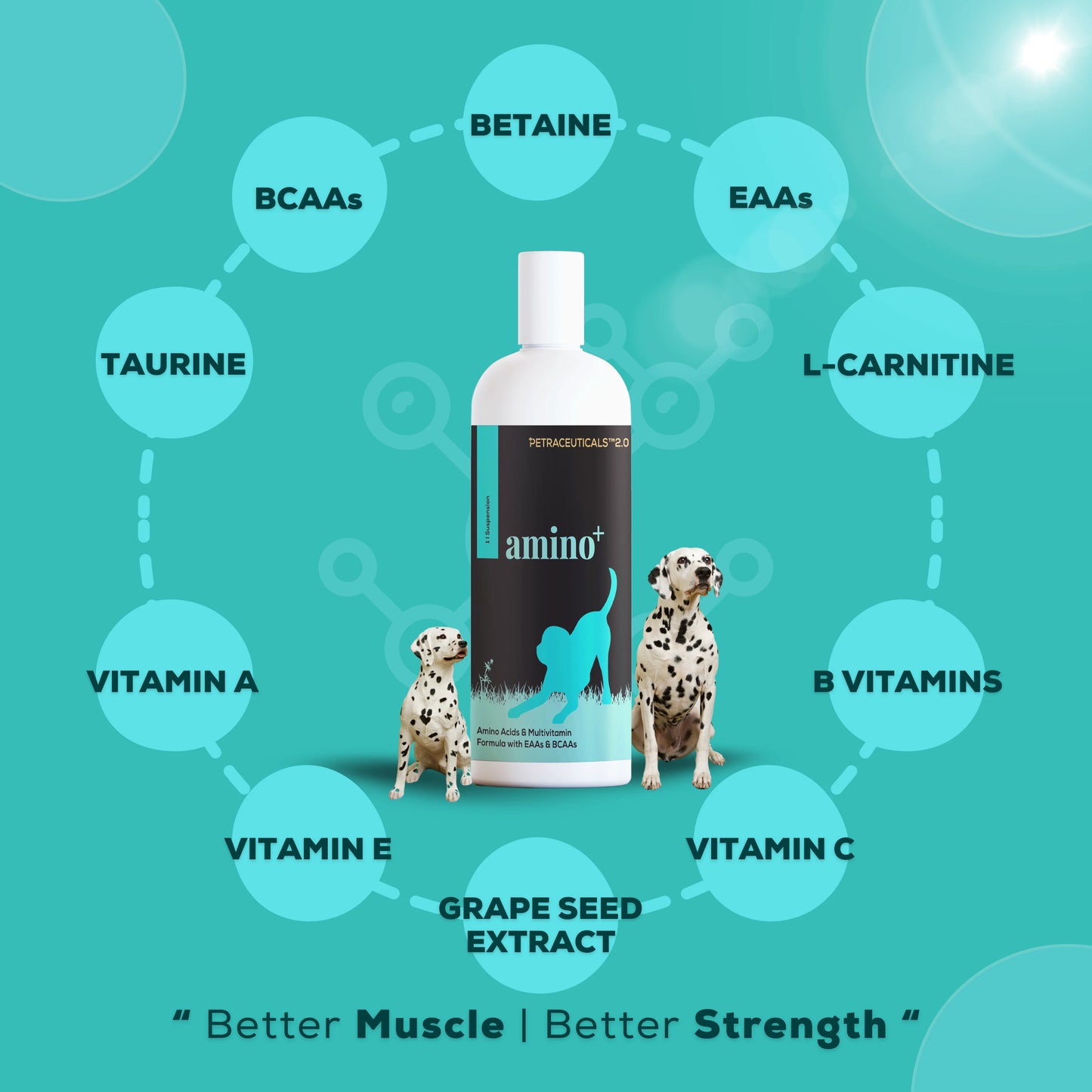
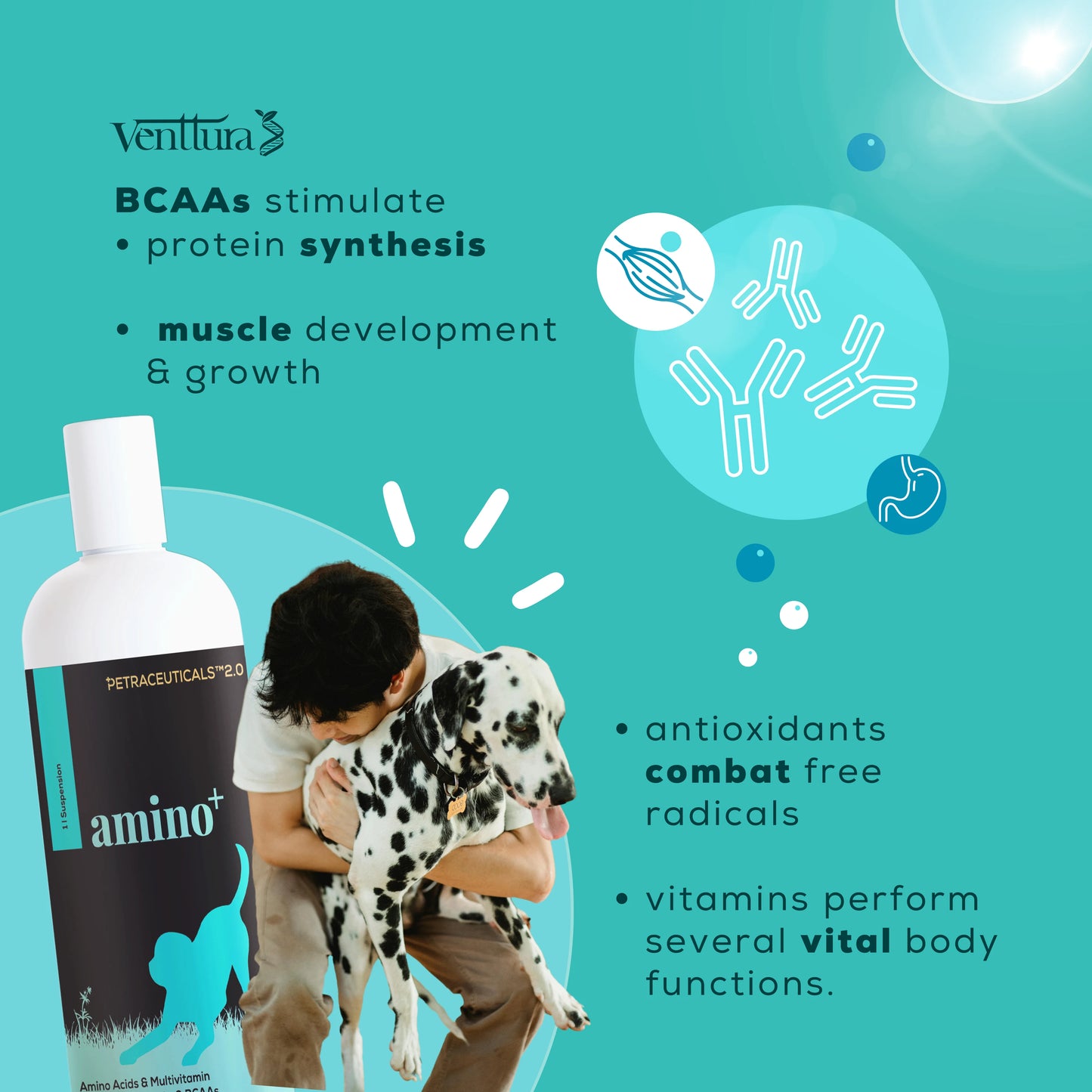
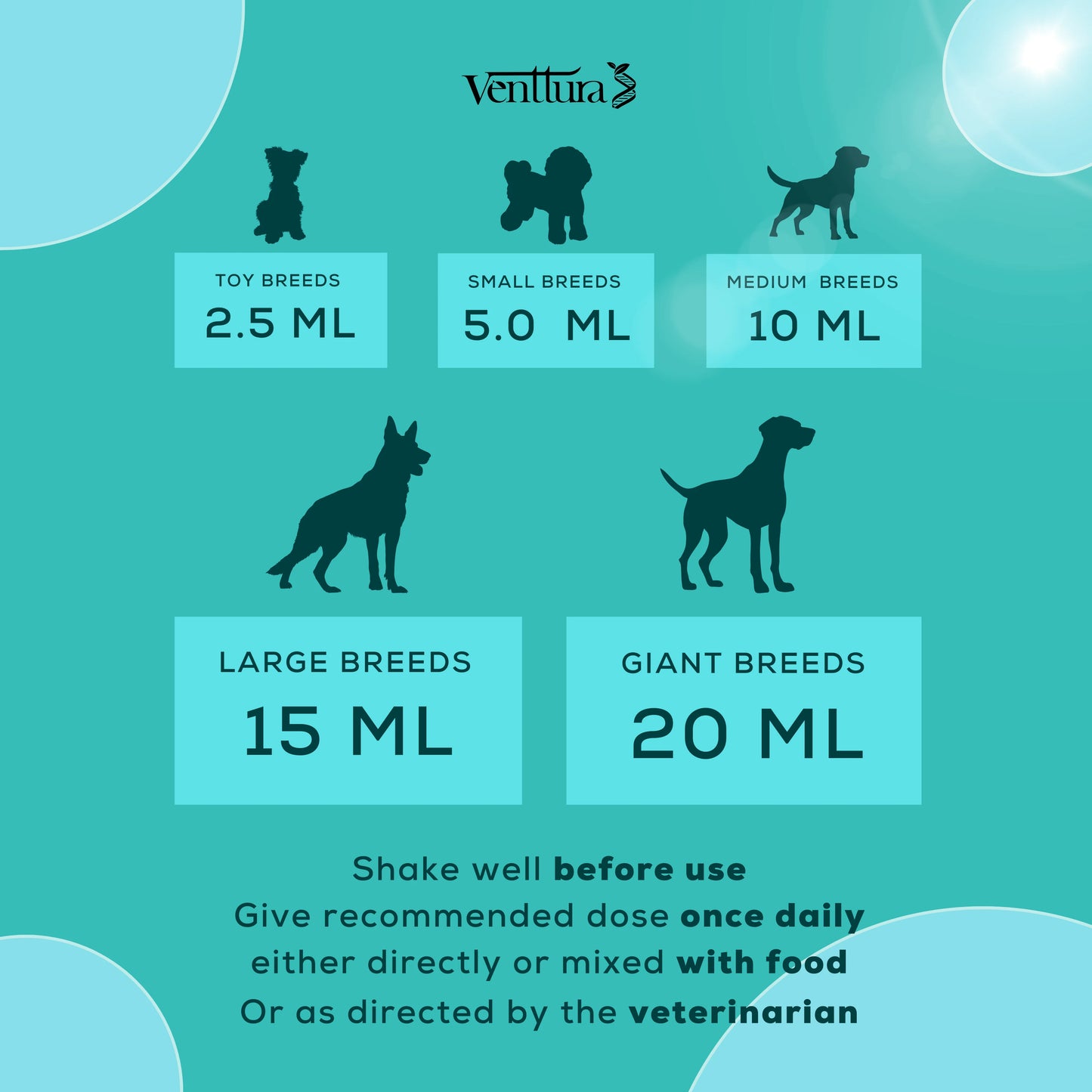
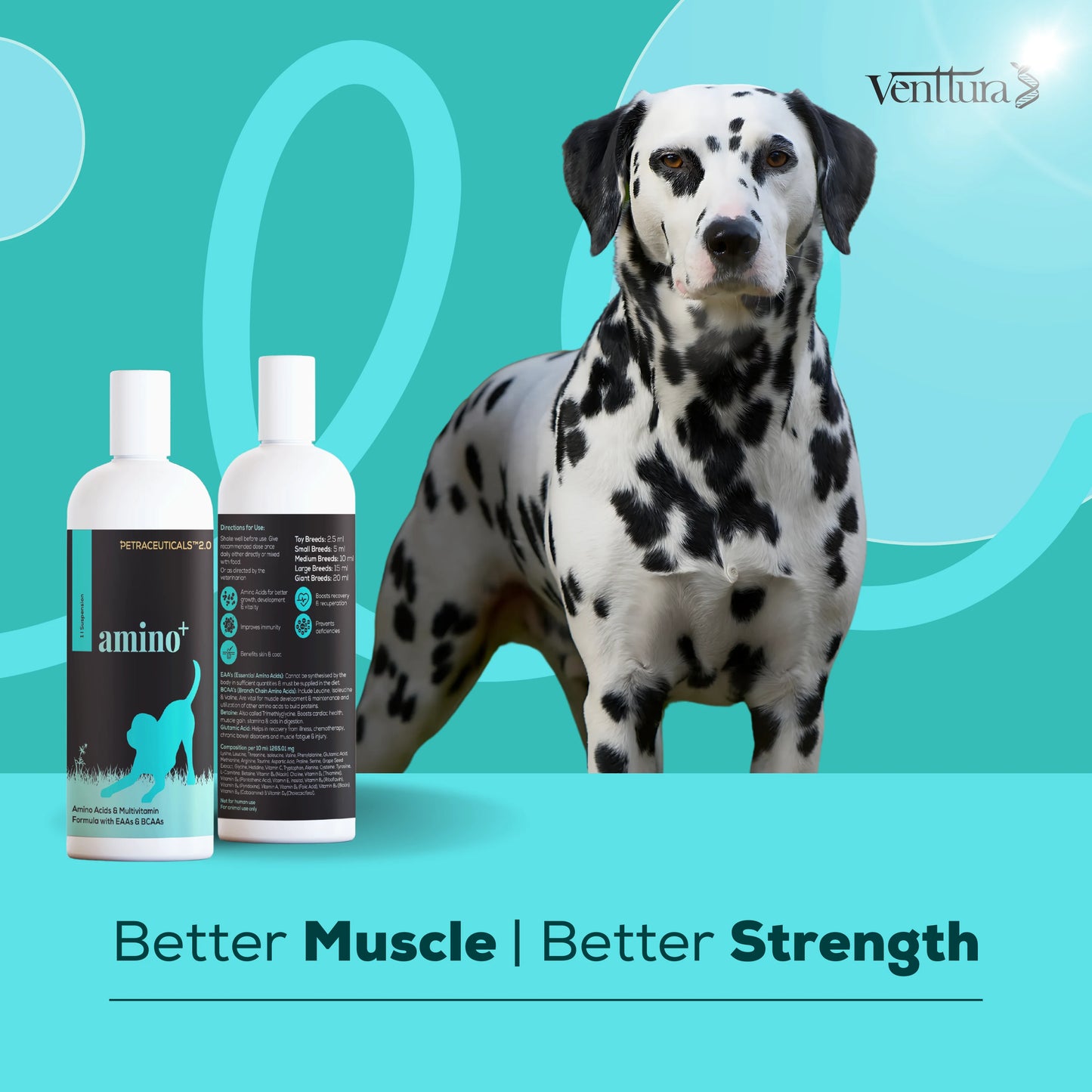
Benefits of Ingredients
-
EAA’s (Essential Amino Acids):
These cannot be synthesised by the body in sufficient quantities and must be supplied in the diet. These are individual "building blocks" for tissues, organs, enzymes, hormones, antibodies etc. For dogs, these include Leucine, Isoleucine, Valine, Arginine, Methionine, Histidine, Phenylalanine, Threonine, Tryptophan and Lysine. For cats, Taurine is also essential.
-
BCAA’s (Branch Chained Amino Acids):
These include Leucine, Isoleucine & Valine. These are vital for muscle development and maintenance and utilization of other amino acids to build proteins, help in haemoglobin production, wound healing, etc.
-
Leucine:
One of the three branch chained amino acids (BCAAs) along with Isoleucine and Valine. Vital for muscle development and maintenance and utilization of other amino acids to build proteins. When combined with regular exercise, it has been found to reduce cholesterol as well boost weight loss and prevent high blood sugar.
-
Isoleucine:
A branch chained amino acid, which along with Leucine and Valine is responsible for energy building, muscle repair and stabilizing blood sugar levels. May also help in haemoglobin production and may facilitate wound healing as it plays a role in blood clotting.
-
Valine:
A branch chained amino acid, which acts along with Leucine and Isoleucine. The three combine to regulate muscle turnover and energy metabolism. May help in the treatment of liver disorders and conditions of the digestive and nervous system.
-
Arginine:
Helps boost the immune system by enhancing T-cell production. It aids in detoxification in the liver and kidneys, induces release of growth hormone and may help in male fertility problems and cardiovascular diseases.
-
Methionine:
Sulfur containing amino acid, which helps in the growth and maintenance of strong bones, hair and nails. It helps in the synthesis of Choline and Taurine in dogs. May help in preventing depositing of fats in the liver and in the synthesis of bile salts. May help prevent tumours.
-
Histidine:
Releases histamines from the body reservoirs. Helps in pain control, prevention of arthritis and helps in the circulatory and digestive system.
-
Phenylalanine:
Responsible for appetite control, synthesis of Tyrosine and other hormones and helps in pigmentation in skin and coat.
-
Threonine:
Regulates energy release, in conjunction with Phenylalanine it regulates moods and helps in synthesis of hormones and pigmentation in skin and coat.
-
Tryptophan:
Produces Serotonin that induces sleep and relaxation, helps in calming anxious animals, acts as a precursor to Niacin (Vitamin B3), helps in the clotting of blood and together with methionine helps in hair growth and maintenance.
-
Lysine:
Helps in growth hormone production, promotes bone growth and development in puppies, helps in production of collagen that makes up cartilage, bones, etc.
-
Taurine:
It is an amino acid that acts in the areas of fat metabolism, nerve and heart health. It has a protective effect on the brain. It helps strengthen heart muscles, regulate blood pressure, enables the liver to synthesise bile salts. Taurine is beneficial for reproduction, healthy eyesight and hearing. It is an important antioxidant.
-
Tyrosine:
It is a non-essential amino acid that plays an important role in the production of neurotransmitters that are required in the proper functioning of the brain and in the reproductive function. It may help reduce stress and aggression. Along with Phenylalanine, it is responsible for optimal coat and eye iris pigmentation.
-
Cysteine:
It is a sulphur - containing amino acid that makes the protein keratin, which makes up hair and nails. It helps in the production of the antioxidant glutathione and helps eliminate free radicals. It also helps in boosting the immune system and in collagen production for healthy skin and joints.
-
Proline:
It is necessary for the production of collagen and maintaining flexibility of joints and contributes to stronger bones. Helps alleviate pain related to osteoporosis. Helps in repair of muscle and tissue damage and enhances the immune system.
-
Aspartic Acid:
Helps in synthesis of cell energy. It plays a vital role in metabolism during formation of other amino acids. Participates in the synthesis of glucose and in neurotransmissions. It may help in improving fertility, help in detoxification of the liver and in optimal brain functioning.
-
Alanine:
It helps in energy production, muscle protection and toxin elimination. It may lower cholesterol levels, help in supporting the health of the prostate and helps enhance the immune system by producing antibodies.
-
Glycine:
Helps in building muscle tissue, maintaining a healthy nervous system and digestive system, helps in the conversion of glucose to energy, has antioxidant properties and aids in the prevention of certain cancers. It may help in the supportive treatment of epileptic seizures.
-
Serine:
Needed for proper functioning of the brain and central nervous system. It is also involved in the function of RNA and DNA, fat and fatty acid metabolism, muscle formation, and the maintenance of a healthy immune system.
-
Glutamic Acid:
Acts as a neurotransmitter. It helps in recovery from stress due to illness, chemotherapy and muscle fatigue & injury. Beneficial for chronic bowel disorders including IBD and leaky gut.
-
L- Carnitine:
It helps to stabilize heart cell membranes and improve compromised cellular energy metabolism. It is beneficial for improving energy, muscle mass and mental functioning. It may also help in boosting red blood cell production in animals with chronic renal failure linked anemia.
-
Betaine:
Also called Trimethlyglycine. It boosts cardiac health & aids in digestion. Improves muscle gain and stamina.
-
Vitamin B1 (Thiamine):
It is a water-soluble vitamin. Aids in metabolism of carbohydrates, fats and proteins, maintenance of normal growth, transmission of nerve impulses, and acetylcholine synthesis. Acts as an antioxidant that boosts kidney circulation. Essential for healthy skin, hair, eyes and liver. Helps improve the immune system.
-
Vitamin B2 (Riboflavin):
It is a water-soluble vitamin. It is part of a number of coenzymes in most cells. It is also used for the production of red blood cells and antibodies that help fight diseases. It helps prevent cataracts and aids in energy production by cells of the body. Riboflavin works with vitamin A to maintain mucous membranes and helps the absorption of iron and vitamin B6 in the intestines. Assists in metabolism of nutrients including fats, carbohydrates, and proteins, and helps activate vitamins B3 and folic acid (B9). Acts as an antioxidant and helps in removal of waste products from the kidneys.
-
Vitamin B3 (Niacin):
It is a water-soluble vitamin. It is required for carbohydrate metabolism and energy production. Needed for healthy skin and proper circulation of the blood throughout the body. The secretion of bile and stomach acids requires niacin. Niacin lowers cholesterol and helps with the synthesis of hormones.
-
Vitamin B5 (Pantothenic Acid):
It is a water-soluble vitamin. It is involved in the production of adrenal hormones and antibodies, is an essential part of coenzyme A and enhances stamina.
-
Vitamin B6 (Pyridoxine):
It is a water-soluble vitamin. Helps in amino acid metabolism, synthesis of proteins, hormones and neurotransmitters. It promotes red cell production, cardiac functioning and sodium-potassium balance, antibody formation and immune system functioning. Needed for absorption of vitamin B12.
-
Vitamin B7 (Biotin):
It is a water-soluble vitamin. Like other B Vitamins, it plays an important role in many metabolic reactions. It is necessary for maintaining healthy skin and hair. Also important for growth, digestion, muscle formation and glucose metabolism.
-
Vitamin B9 (Folic Acid):
It is a water-soluble vitamin. Plays an important role in synthesis of DNA, homocysteine metabolism, cellular division, RBC production, development of the nervous system and synthesis of neurotransmitters.
-
Vitamin B12 (Cobalamin):
It is a water-soluble vitamin necessary for energy production; for maintaining bone mineral health and to prevent osteoporosis, for nervous system function as it is needed to produce myelin – the protective sheath around nerves; for the production of acetylcholine, a neurotransmitter; for the synthesis of red blood cells; for producing the genetic materials, DNA and RNA, for production of collagen and for liver function and protection.
-
Vitamin C:
It is a water-soluble vitamin vital for synthesis of collagen, which forms a component of cartilage, tendons, etc. Acts as an antioxidant, attacking free radicals in cellular fluids formed due to cell metabolism. May help in age related as well as diabetic cataract. Helps boost immunity.
-
Vitamin A:
It is a fat-soluble vitamin. Beneficial for eyes, immune system, bone metabolism and healthy skin. Helps in organ growth in a developing foetus. Acts as an antioxidant that eliminates free radicals and prevents cell & tissue damage, slows down the process of ageing, helps in preventing cardiovascular diseases, cancer, inflammatory diseases, etc.
-
Vitamin D3 (Cholecalciferol):
It is a fat-soluble vitamin. It is needed for proper absorption of calcium and phosphorus from the intestinal tract. It is needed for normal growth and development of bones and teeth; it protects against muscle weakness and regulates the heart. Vitamin D helps prevent osteoporosis, enhances immunity, and is needed for proper thyroid function and blood clotting.
-
Vitamin E:
It is a fat-soluble vitamin. Powerful antioxidant that eliminates free radicals and prevents cell & tissue damage, slows down the process of ageing, helps in preventing cardiovascular diseases, cancer, inflammatory diseases, maintaining healthy skin and coat, etc.
-
Inositol:
It forms a part of the cell membrane and plays a role in helping the liver process fats as well as contributing to the function of muscles and nerves and maintaining healthy skin and coat. It reduces cholesterol and has a calming effect. Powerful antioxidant that may help in preventing cancer and as support therapy in animals suffering from cancer.
-
Choline:
It helps in the formation of cell membrane, prevents accumulation of fats in the liver and helps in the synthesis of acetylcholine- a neurotransmitter. It also helps as support therapy in liver diseases and helps in preventing certain cancers.
-
Grape Seed Extract:
It has a great concentration of antioxidant polyphenols, flavonoids and proanthocyanidins that provide protection from free radicals, aid in pain relief and have anti-inflammatory properties. Grape seed extract has benefits for the heart and circulatory system, enhances brain health and nerve health and may help in prevention of cancer. It helps to manage histamine levels thereby reducing allergic stress.

Note:
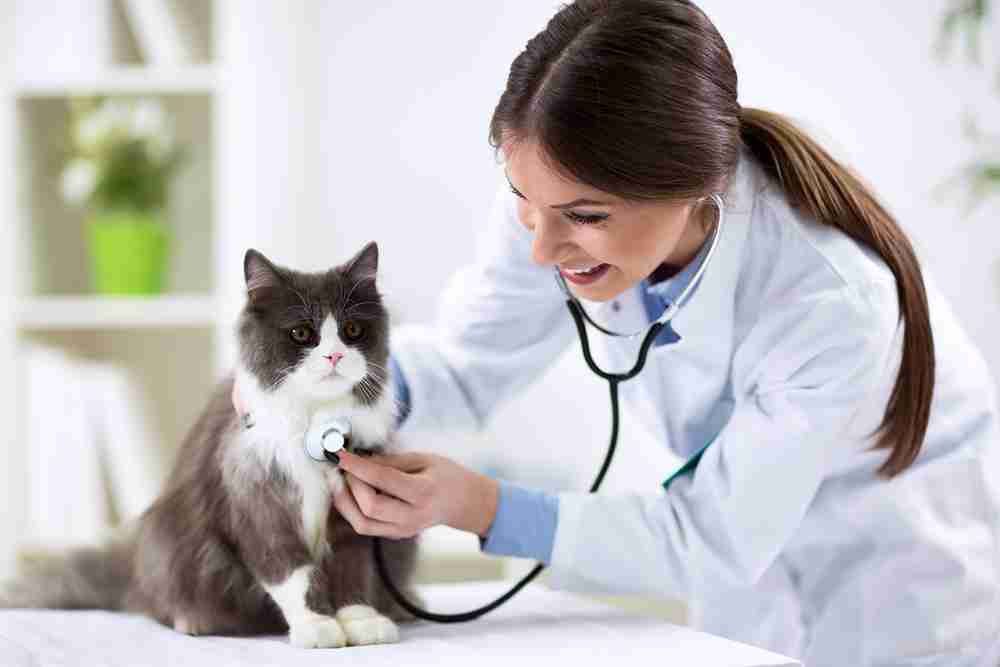
Endorsed by Experts, Trusted by Pets Parents!
Shop Combo
-
Soft & Shine: Omega+ (150ml) & Fur+ (45 Tablets)
Regular price Rs. 824.00 (20% OFF)Regular priceUnit price perRs. 1,030.00Sale price Rs. 824.0020% OFF -
Ultimate Health : Amino+ & Omega+ (150ml each)
Regular price Rs. 668.00 (20% OFF)Regular priceUnit price perRs. 835.00Sale price Rs. 668.00Sold out -
Mobility Care : Flexi+ (45 Tablets) & Omega+(150ml)
Regular price Rs. 1,160.00 (20% OFF)Regular priceUnit price perRs. 1,450.00Sale price Rs. 1,160.0020% OFF -
Coat Booster: Amino+ (250ml) & Fur+ (90 Tablets)
Regular price Rs. 1,192.00 (20% OFF)Regular priceUnit price perRs. 1,490.00Sale price Rs. 1,192.0020% OFF

